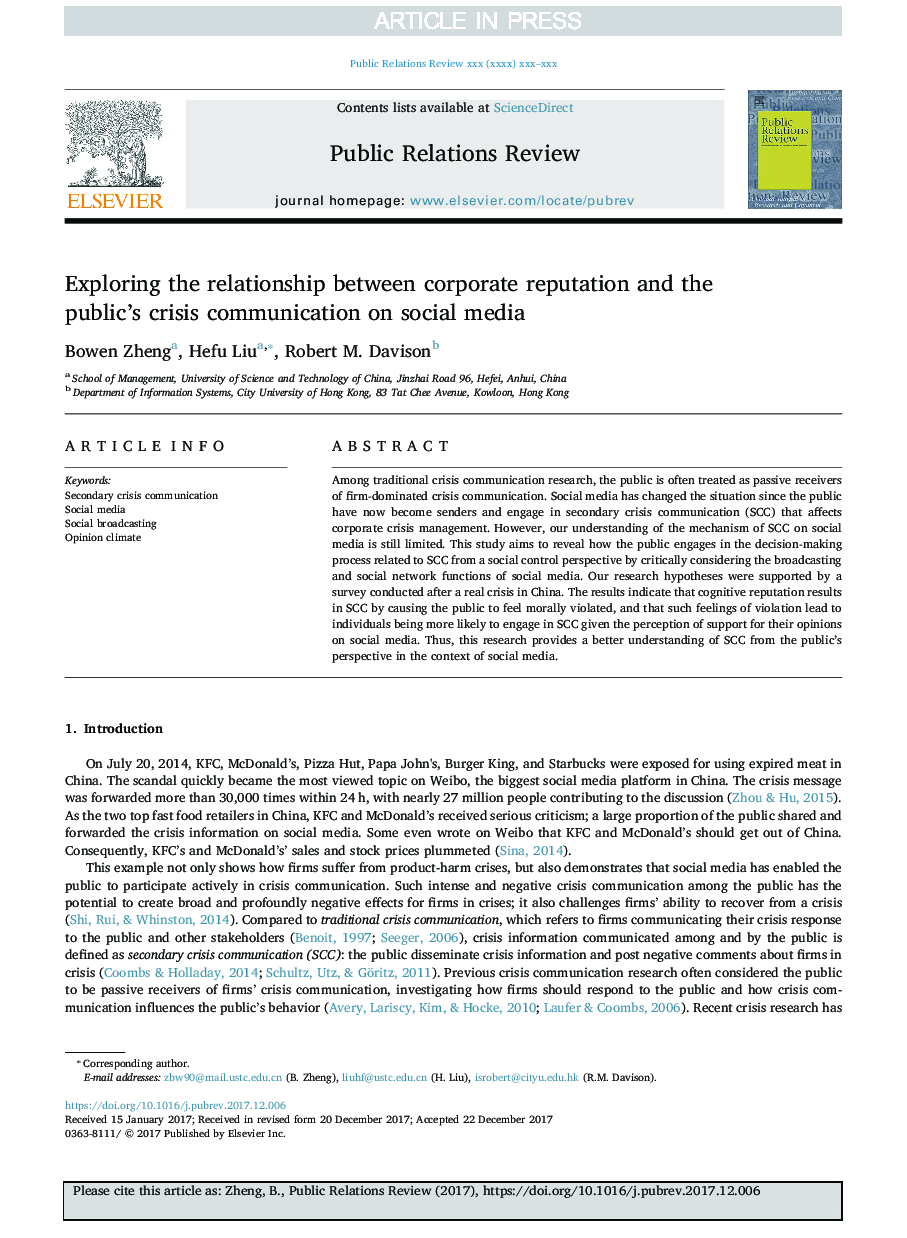| Article ID | Journal | Published Year | Pages | File Type |
|---|---|---|---|---|
| 6575864 | Public Relations Review | 2018 | 9 Pages |
Abstract
Among traditional crisis communication research, the public is often treated as passive receivers of firm-dominated crisis communication. Social media has changed the situation since the public have now become senders and engage in secondary crisis communication (SCC) that affects corporate crisis management. However, our understanding of the mechanism of SCC on social media is still limited. This study aims to reveal how the public engages in the decision-making process related to SCC from a social control perspective by critically considering the broadcasting and social network functions of social media. Our research hypotheses were supported by a survey conducted after a real crisis in China. The results indicate that cognitive reputation results in SCC by causing the public to feel morally violated, and that such feelings of violation lead to individuals being more likely to engage in SCC given the perception of support for their opinions on social media. Thus, this research provides a better understanding of SCC from the public's perspective in the context of social media.
Keywords
Related Topics
Social Sciences and Humanities
Business, Management and Accounting
Marketing
Authors
Bowen Zheng, Hefu Liu, Robert M. Davison,
